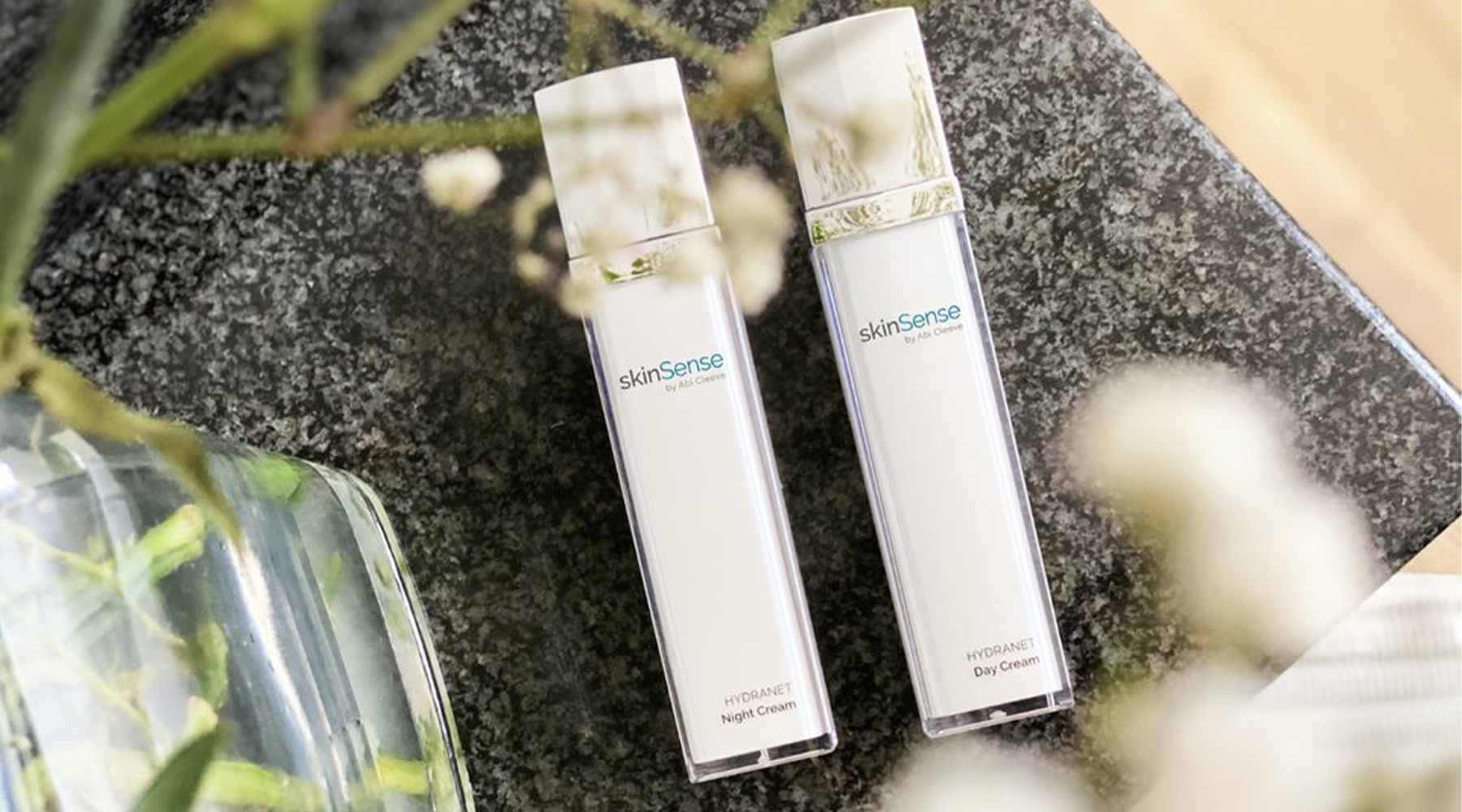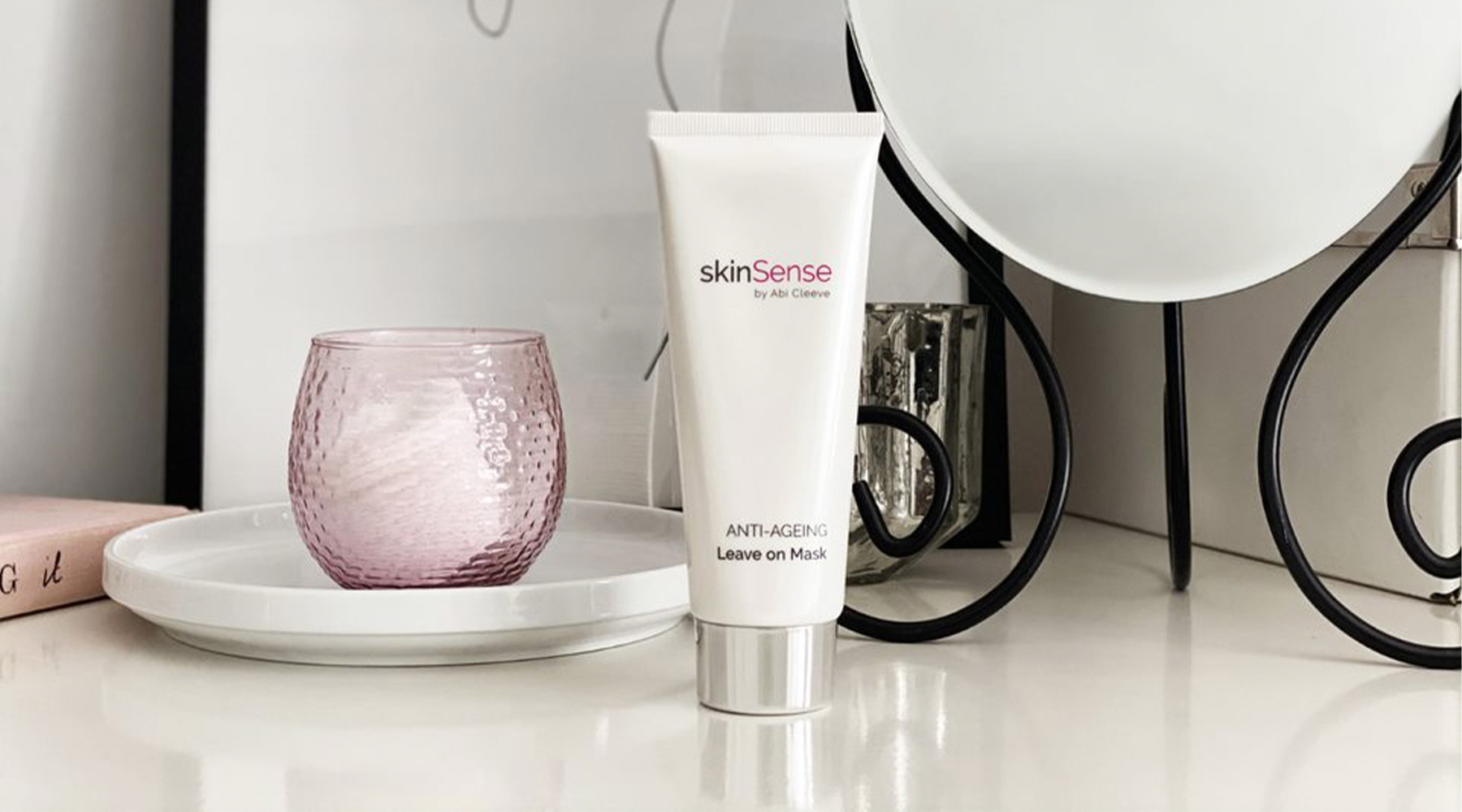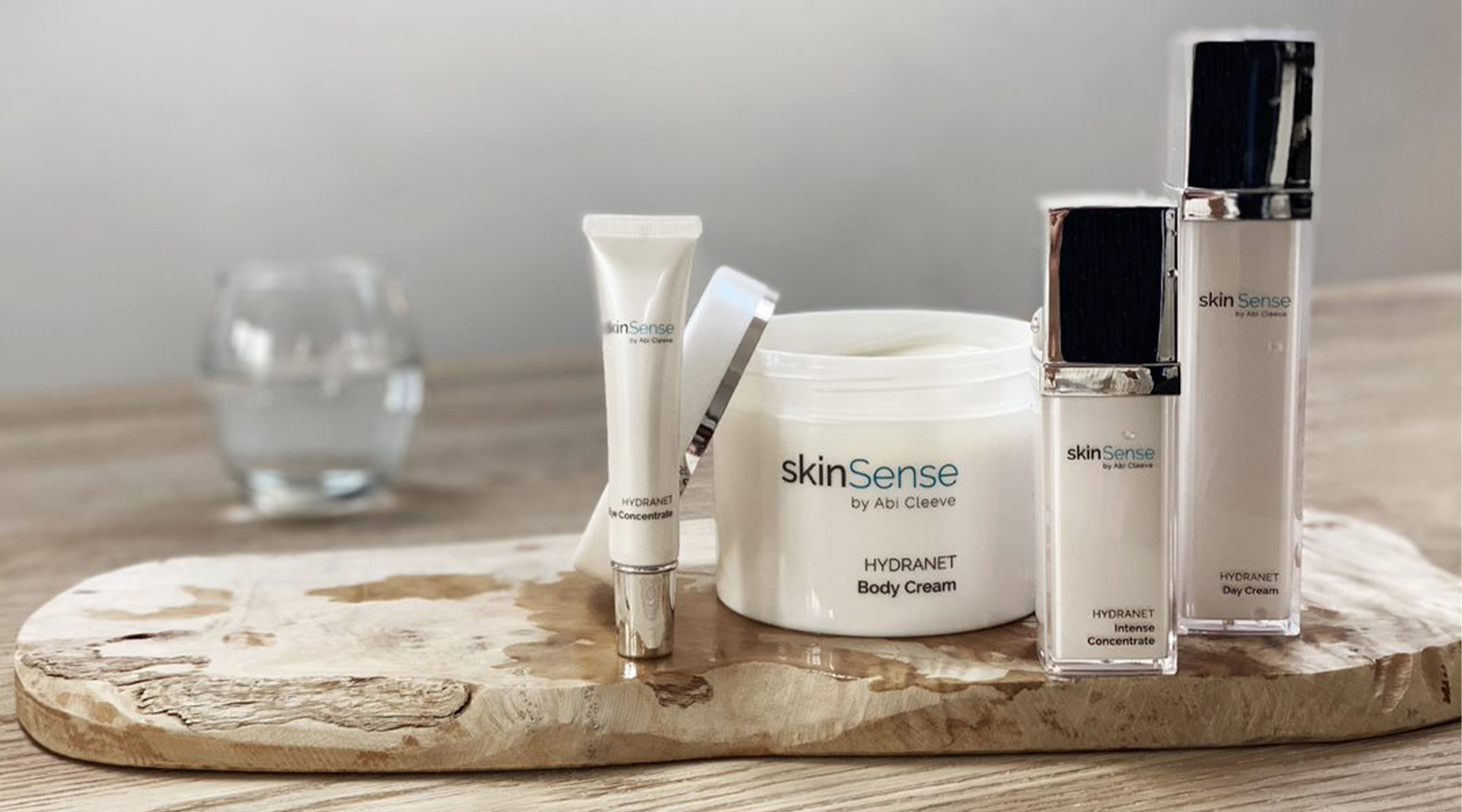Treating a lacklustre complexion can be confusing. What do you target first; dryness, or dehydration? After all, they’re the same thing… right? Not the case!
Your skin can be dry, dehydrated, or both. While sharing similar characteristics, the cause of each is different. Our guide will help you to define if you have dryness or dehydration, while Abi Cleeve from top skincare brand, Skinsense, is on hand to offer her advice.
Defining dry skin
Dry skin is a skin type, rather than a skin condition. This is the skin you’re born with – it’s not caused by external factors. Dry skin produces less sebum, so your face may feel tighter, and your complexion may have a dullness to it.
Dry skin can also be:
- Flaky
- Unable to properly absorb product
- Irritable
Treating dry skin
When it comes to dryness, oil-rich formulas work to deliver the moisture that your skin is craving. Skinsense’s Hydranet Intense Concentrate and Hydranet Hydrating Night Cream feature amaranth oil, Inca Inchi nut oil, sweet almond oil, jojoba oil and shea butter to help to soothe the look of dryness. But it’s not just the ingredients that are important.
Abi believes how your product works is just as vital: “Dry skin needs a constant flow of hydration. It’s not just about the ingredients, but the delivery system.”

Infused with hyaluronic acid, acacia collagen and sweet almond oil, the Hydranet collection also utilises lameller technology – often found in suncare – to help create a protective film around active ingredients.
“This ‘suit of armour’ not only protects the precious and vulnerable ingredients, but it supports the penetration into the skin, allowing them to be held in the skin system for hours and hours. The skin can access the support ingredients and hydration whenever it needs them.”
Take a look at your cleanser too. Some formulas, like foaming cleansers, can be too harsh on dry skin, while creamier textures, like Skinsense’s Purifying Double Cleanse, will help to cleanse your skin of daily impurities while maintaining your complexion’s moisture levels.
Defining dull skin
Dull skin is a skin condition, with factors such as weather, lifestyle and diet potentially causing your complexion to look dull or flat. Dehydration can affect any skin type (oily skin types can maintain a shiny look while still being dehydrated), and is caused by the skin lacking water.
Dull skin can also be:
- Slightly grey in appearance
- Tight-feeling
- The cause of patchy foundation through the day
Treating dehydrated skin
As Abi explains, dehydrated skin can be easily overwhelmed by too many products.
“Overloading the skin with multiple layers of product can actually do more harm than good and can cause breakouts and congestion. Dehydrated skin needs the support of hydrators such as fucogel – a clever gel that actually delivers more hydration to the skin as time goes on.”
Focusing on individual ingredients like fucogel or hyaluronic acid (great for dehydrated skin as it helps to retain water in the skin) will help to create a plumper, healthier-looking appearance, without over-working your skin. You can easily introduce these ingredients into your routine with formulas like the Overnight Leave-On Mask. This works while you sleep to help you wake up with a plumper, healthier-looking complexion.

Once you understand your skin, it’s easier to build a routine that works well for you. “We must respect our skin as a system and help and support it without overloading this precious protector. Keep it simple, only give your skin what it needs, hydration and protection.”
Thanks for the advice Abi!
Shop the full range of Skinsense beauty here, and make sure to check out Abi’s award-winning suncare range Ultrasun, too.




